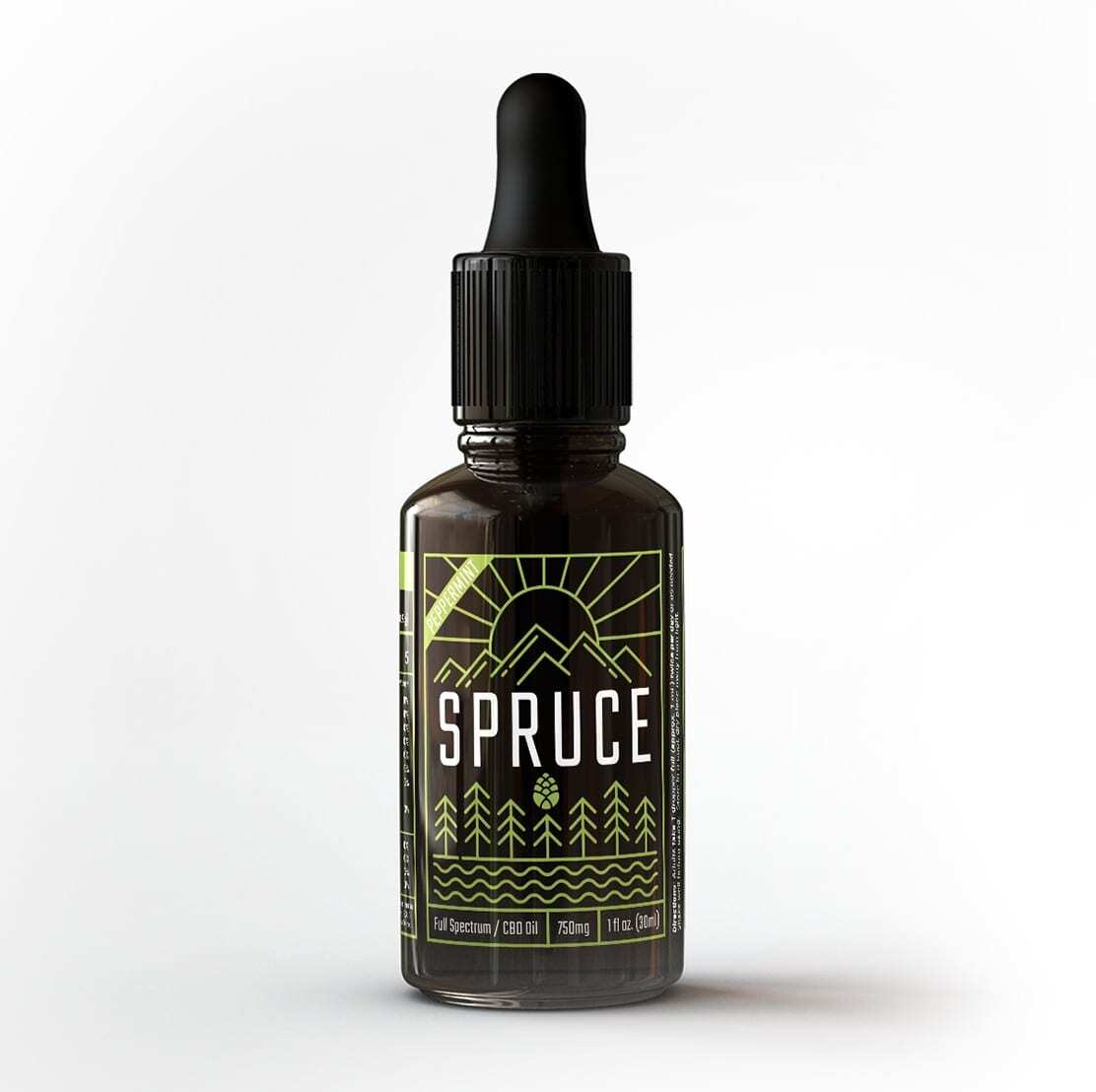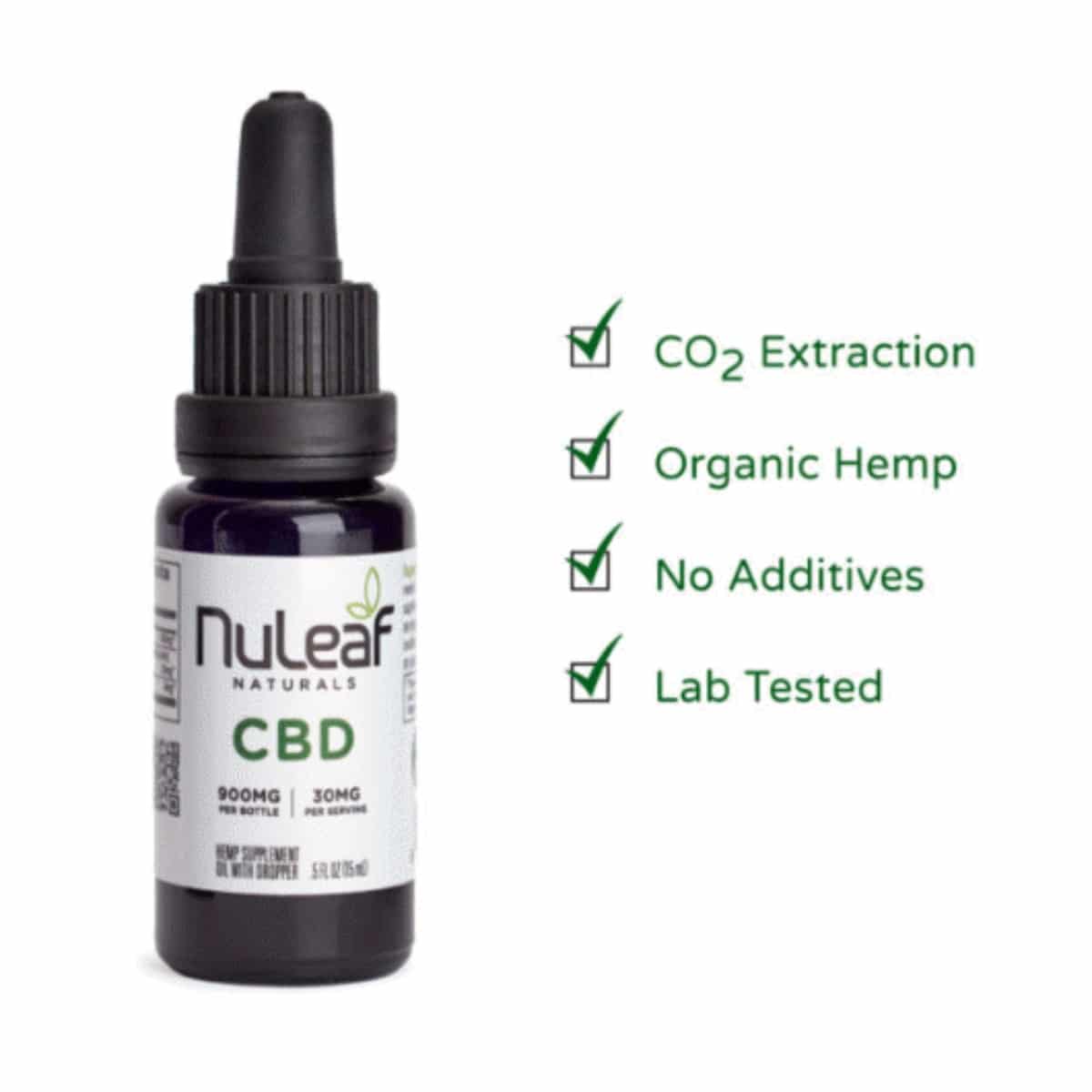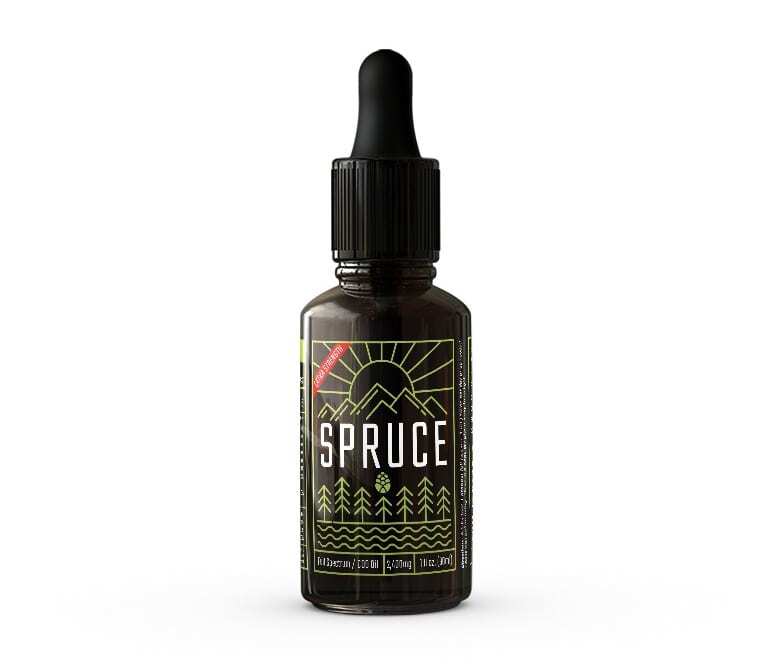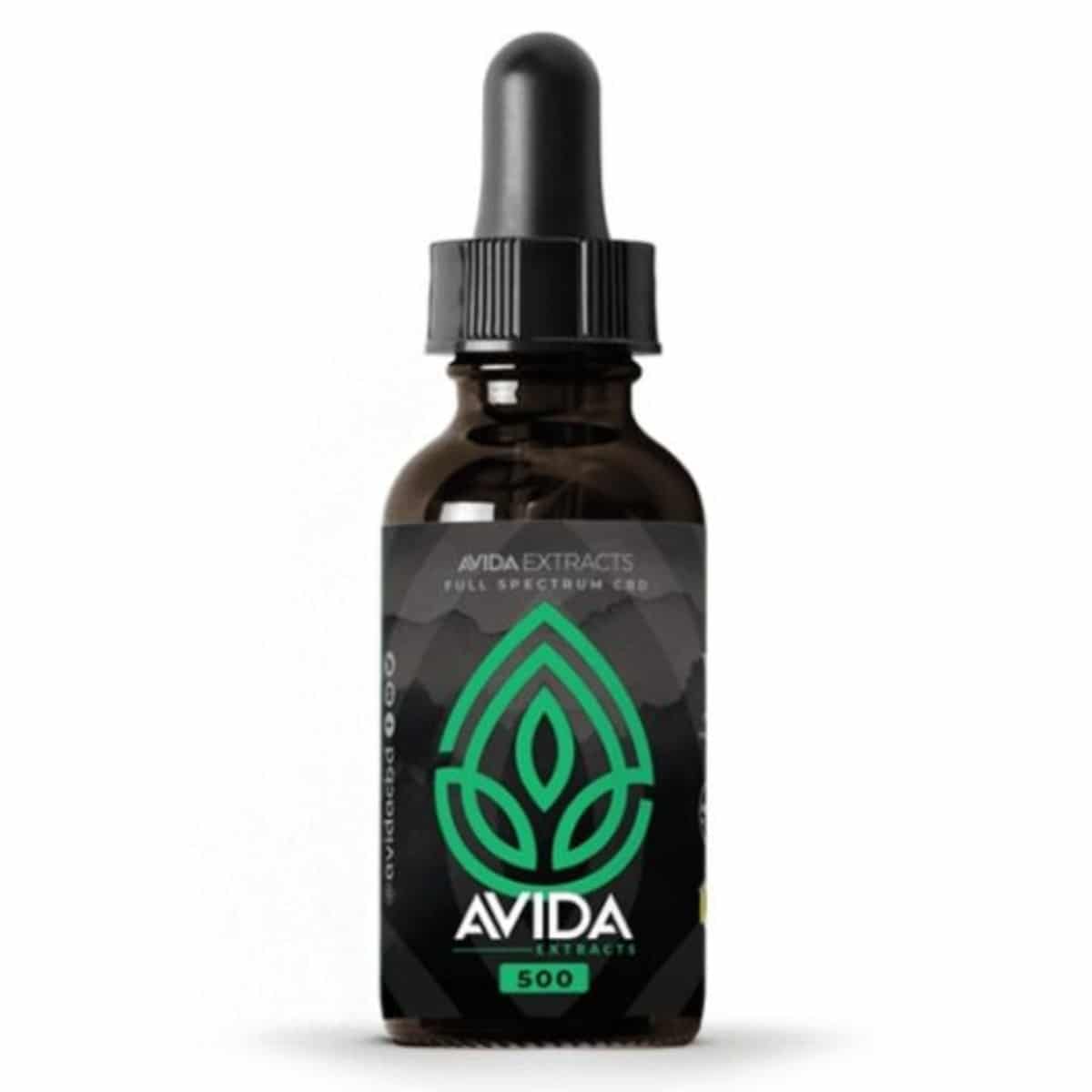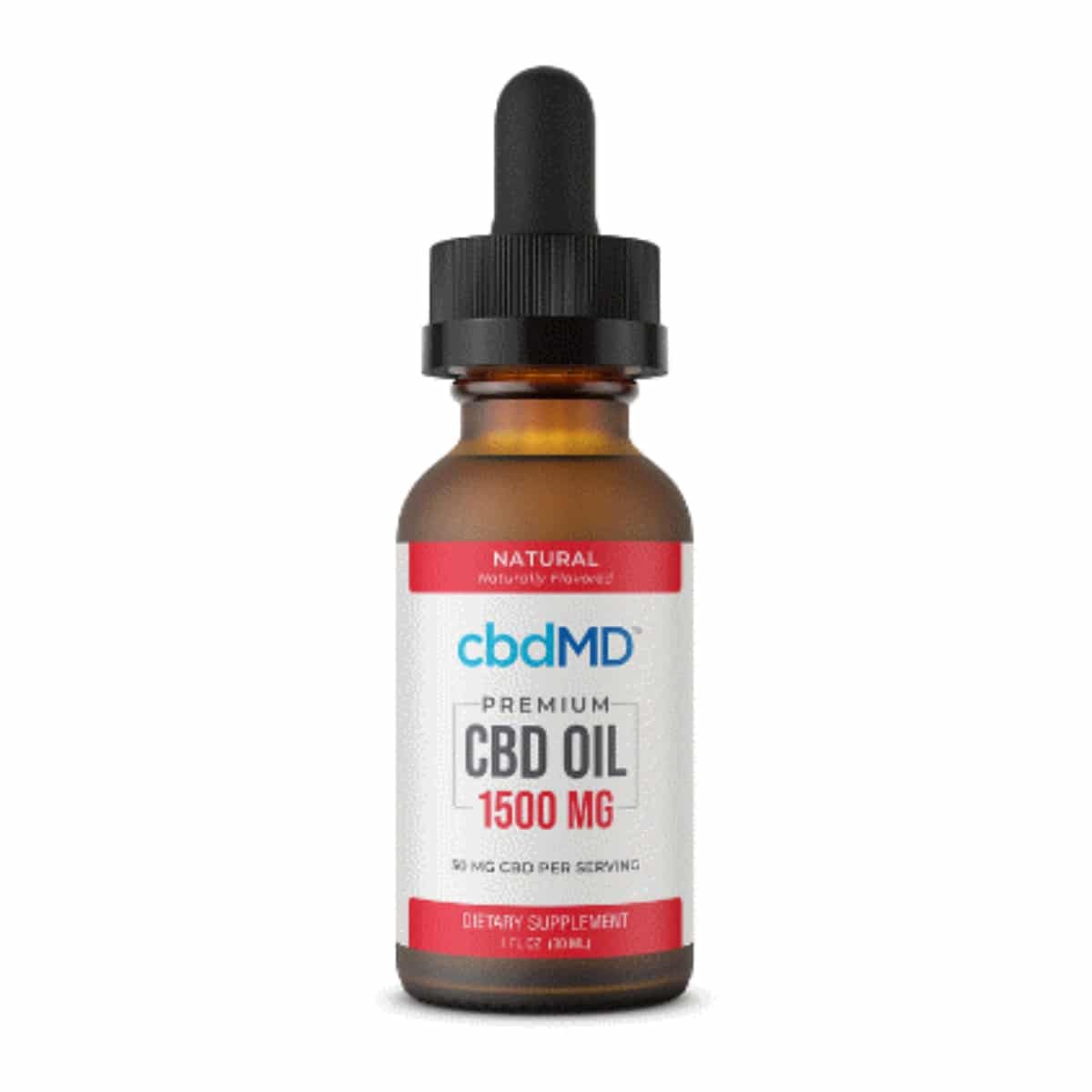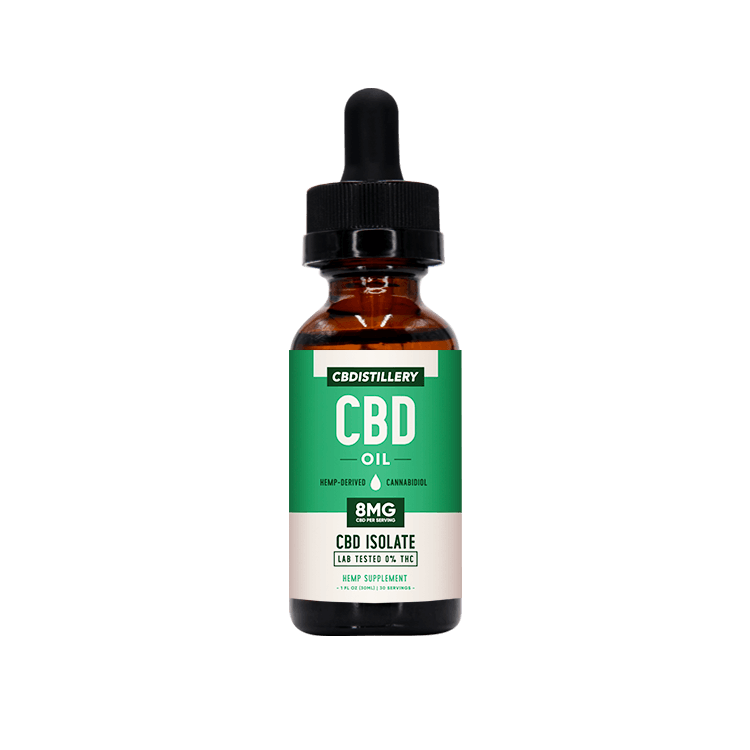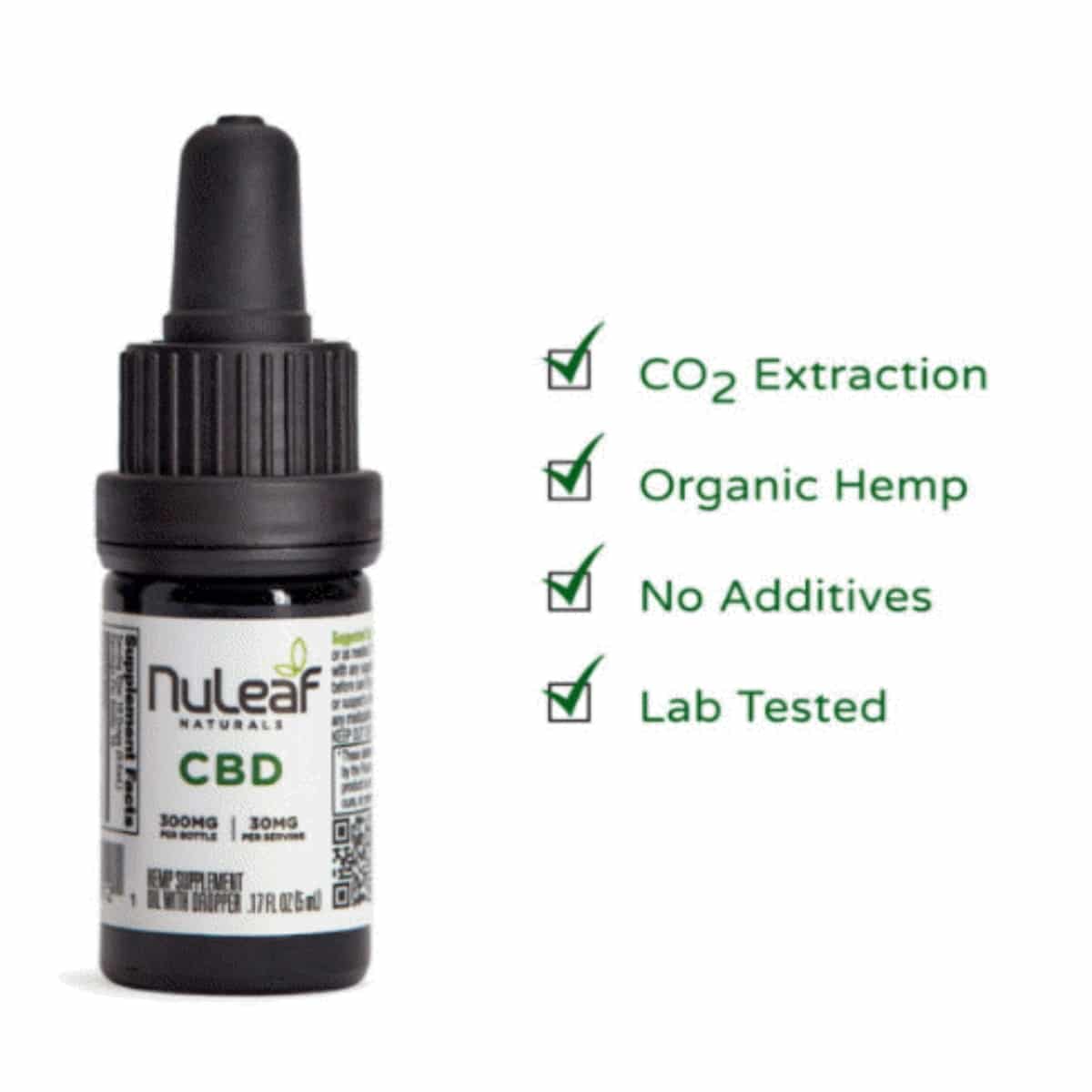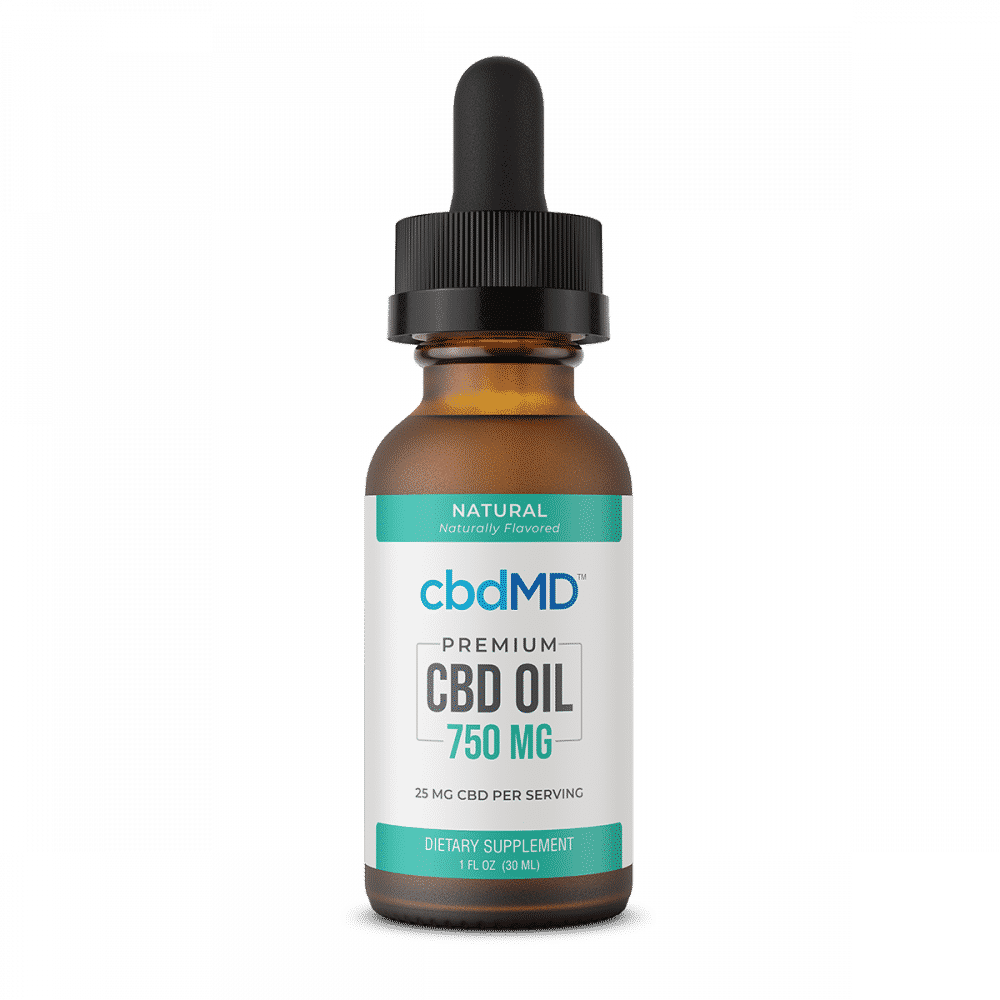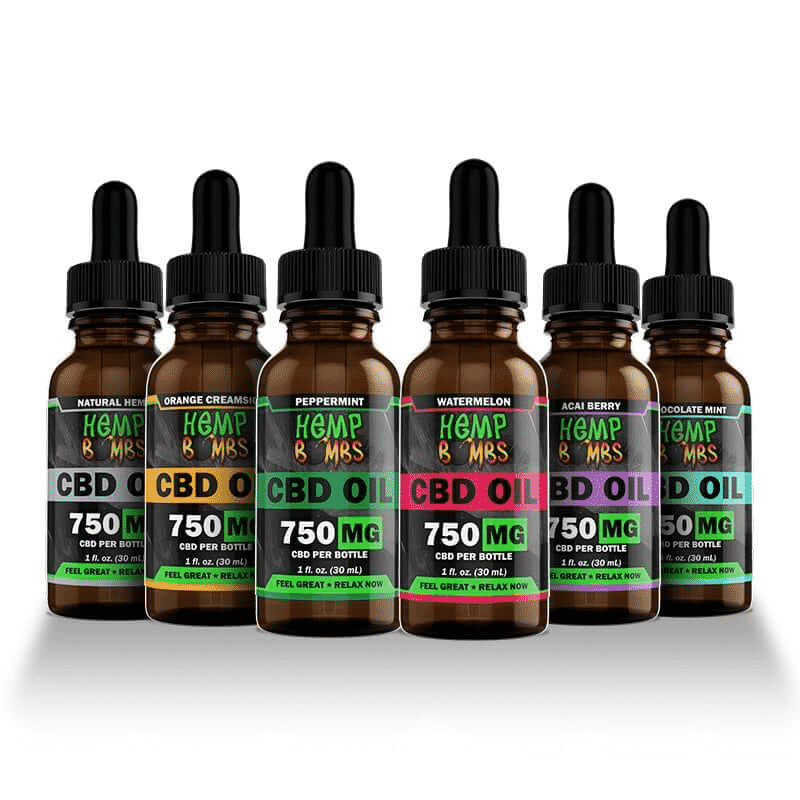Best CBD for Inflammation
Do you often experience adverse effects when using conventional medications for inflammatory conditions? Discover the best cannabidiol (CBD) oils you can try as an alternative treatment for pain and inflammation.
Best CBD for Inflammation 2025
- Spruce 750mg Lab Grade CBD Oil Editor's Pick
- NuLeaf Naturals 900mg Full Spectrum Hemp CBD Oil Best Organic
- Spruce 2400mg Lab Grade CBD Oil Editor's Pick
- Avida Full Spectrum CBD Oil Tincture 500mg Best Seller
- cbdMD CBD Oil Tincture Natural 1500mg Best Natural Alternative
- CBDistillery THC Free CBD Oil Tinctures Best THC-Free
- cbdMD CBD Oil Tincture Natural 750mg Best Customer Rated
- NuLeaf Naturals 300mg Full Spectrum Hemp CBD Oil Best Starter
- Hemp Bombs 750mg CBD Oil Best Flavor Range
Compare the best CBD for Inflammation in 2022
Best CBD for Inflammation
1. Spruce 750mg Lab Grade CBD Oil
cbdc overall score
4.8
CBDC Evaluation Table/Score
| Pros | Cons |
|---|---|
| Mid-strength | No other flavors |
| Natural peppermint flavor | |
| Made from 100% organic and natural ingredients |
Overview
Each bottle of the 750mg CBD oil tincture contains 25mg of CBD per dropper full. The oil is peppermint flavor to mask any unpleasant tastes related to CBD.
2. NuLeaf Naturals 900mg Full Spectrum Hemp CBD Oil
cbdc overall score
5.0
CBDC Evaluation Table/Score
| Pros | Cons |
|---|---|
| Pure CBD hemp | No other flavors |
| All natural | |
| Approximately 300 drops total |
Overview
Natural remedy for various illnesses. NuLeaf Naturals’ CBD oil is a whole-plant extract containing a full spectrum of naturally occurring synergistic cannabinoids and terpenes.
3. Spruce 2400mg Lab Grade CBD Oil
cbdc overall score
5.0
CBDC Evaluation Table/Score
| Pros | Cons |
|---|---|
| Extra Strength | Tastes bitter |
| No artificial flavoring or colors | No THC-free option |
| Made from 100% organic and natural ingredients |
Overview
The largest bottle of CBD oil that Spruce offers contains 2,400mg of CBD. This is full-spectrum CBD oil, which is the maximum possible potency. Each high potency dropper full contains 80mg of CBD. There are no flavorings in it, which allows for the most CBD to fit in the 30ml bottle.
4. Avida Full Spectrum CBD Oil Tincture 500mg
cbdc overall score
4.6
CBDC Evaluation Table/Score
| Pros | Cons |
|---|---|
| Light Spearmint flavor | No other flavor |
| Non-THC, Non-detected in drug test |
Overview
Avida Extracts Full Spectrum CBD oil is the latest iteration of the brand’s advanced Avida CORE Spectrum technology. They use a proprietary full spectrum blend, resulting in the highest naturally occurring Phyto-cannabinoids and Terpenes with THC (<0.3) to support your health.
5. cbdMD CBD Oil Tincture Natural 1500mg
cbdc overall score
4.7
CBDC Evaluation Table/Score
| Pros | Cons |
|---|---|
| Various delicious flavors to choose from | cbdMD uses MCT as its carrier oil so individuals who are allergic with coconuts should consider other brand options |
| Has vegan, organic, and gluten-free ingredients | |
| Free shipping for this particular product within USA | |
| World-class customer service team |
Overview
cbdMD’s CBD oil tinctures are made using only CBD sourced from medical hemp and MCT oil as a carrier oil. Tinctures are offered in orange, mint, natural, and berry flavors. Safe for daily use, the oil tinctures are packaged with a built-in rubber dropper to adjust CBD dosage easily. The packaging is made to be easy to transport and discreet to use.
6. CBDistillery THC Free CBD Oil Tinctures
cbdc overall score
4.4
CBDC Evaluation Table/Score
| Pros | Cons |
|---|---|
| 60-Day Satisfaction Guarantee | Dropper is a bit shaky |
| Various strengths | |
| Oil extracted from aerial plant parts of US grown industrial hemp | |
| Sourced from non-GMO industrial hemp grown in the USA through natural farming practices |
Overview
CBDistillery’s Isolate CBD Oil Tinctures harness the power of pure CBD. CBD Isolate Oil Tinctures include 0.0% THC. When you use CBDistillery CBD Isolate Oil Tinctures, you can be assured you’re using the highest quality CBD on the market.
7. NuLeaf Naturals 300mg Full Spectrum Hemp CBD Oil
cbdc overall score
4.6
CBDC Evaluation Table/Score
| Pros | Cons |
|---|---|
| Pure CBD hemp | No other flavors |
| All natural | A bit pricey compared to competitors |
| Approximately 100 drops total |
Overview
This is one of several concentrations from NuLeaf Naturals. As the lowest concentration, it is the company’s best option for those new to CBD oil. The product is lab-tested and fully organic. It is full-spectrum, so it contains THC in small quantities.
8. cbdMD CBD Oil Tincture Natural 750mg
cbdc overall score
4.4
CBDC Evaluation Table/Score
| Pros | Cons |
|---|---|
| Vegan and Gluten free | Does not ship internationally |
| Has a third-party lab test | |
| Wide variety of CBD strengths and sizes |
Overview
A 750mg bottle of cbdMD’s Broad Spectrum Oil Tincture does not contain THC. It also has a fairly wide flavor range which is perfect for those who prefer other taste. Vegan consumers are considered since cbdMD offers Vegan products. Aside from all of that, another reason why people love cbdMD is because it’s free from harmful chemicals.
9. Hemp Bombs 750mg CBD Oil
cbdc overall score
3.9
CBDC Evaluation Table/Score
| Pros | Cons |
|---|---|
| Wide variety of flavors | Incomplete information about the product |
| Lab test results are complete | Does not ship to all international countries |
| 30-day money-back guarantee |
Overview
Hemp Bombs offer CBD Oil Tinctures that come in a 30ml bottle containing 750mg of CBD. They provide a wide range of flavors perfect for those that have a knack for sweets. Consumers can safely intake this because it’s free of chemicals and pesticides. Hemp Bombs also offer a 20% off on products upon subscription.
How CBD Helps With Inflammation
There is growing research suggesting CBD’s therapeutic effects on inflammation and inflammatory health conditions(1).
To learn how CBD impacts inflammation, one should first understand the endocannabinoid system (ECS). This system is responsible for essential bodily functions, such as mood, pain perception, memory, and appetite(2).
CBD works in the body through its interaction with the ECS and its receptors. There are two central receptors in the ECS: cannabinoid receptor 1 (CB1 receptor) and cannabinoid receptor 2 (CB2 receptor), which regulate vital body functions.
Cannabinoids, such as CBD and tetrahydrocannabinol (THC), are called phytocannabinoids, as they come from the cannabis plant. Meanwhile, endocannabinoids are naturally occurring cannabinoids in the body.
Cannabinoids have immunomodulatory properties to help them regulate the immune system(3).
In a study published in Future Medicinal Chemistry, cannabinoids were found to reduce symptoms of diseases relating to inflammation(4). This occurrence happens through the suppression of inflammatory responses.
Aside from their immunomodulatory properties, cannabinoids play a vital role in the induction of apoptosis or cell death in activated immune cells. Cannabinoids also have the ability to suppress cytokines and chemokines in inflammatory sites.
Cytokines, which are signaling molecules, are also key modulators of inflammation. These molecules are involved in acute and chronic inflammation through a complex network of interactions(5).
Meanwhile, chemokine is a cytokine that attracts cells to sites of infection or inflammation(6).
Cell death (apoptosis) is essential in regulating inflammation. Invading viruses (microbial pathogens) and dying cells should be cleared to maintain balance in the body(7).
Failure to clear apoptotic neutrophils may result in a prolonged inflammatory response. Neutrophils are white blood cells that fix infections and heal damaged tissues.
It was also suggested that CBD enhances adenosine signaling, which results in decreased inflammation(8).
According to researchers, adenosine receptors suppress overactive immune cells, resulting in the protection of several tissues from inflammatory damage.
Benefits of Using CBD Oil for Inflammation
CBD vs. Pain
Pain and inflammation are correlated. Any kind of pain comes from inflammation and the body’s inflammatory response(9).
Researchers conducted a study of 24 patients with spinal cord injuries, multiple sclerosis, and limb amputation.
Patients received whole-plant extracts of CBD, delta-9-tetrahydrocannabinol (THC), a sublingual spray with a 1:1 ratio of CBD and THC, and a placebo(10).
THC is an active ingredient of the Cannabis sativa plant that produces psychoactive effects on users.
According to the authors, CBD and THC were significantly superior to placebo in pain relief. Patients also reported improvement in their muscles and alleviation of spasms, spasticity (muscle tightening), and impaired bladder control.
Meanwhile, the test subjects administered with THC-containing cannabis medical extracts experienced low blood pressure (hypotension) and intoxication.
In another study on 64 patients with multiple sclerosis, the authors administered an oral spray with CBD and THC or a placebo to the participants(11).
The patients who received the whole-plant cannabis-based treatment reported attenuation of their central neuropathic pain related to multiple sclerosis. The patients also observed reduced sleep disturbance.
A study published in the Transplantation Proceedings journal was conducted on seven kidney transplant patients. They received CBD twice a day for three weeks. The initial dose of 50mg of CBD was gradually increased to 150mg(12).
Out of the seven patients, two reported significant improvement in their pain. Four participants experienced partial pain improvement in the first 15 days, while one patient did not experience pain relief.
Researchers also observed side effects, such as nausea, drowsiness, dry mouth, dizziness, and intermittent heat episodes.
A 2020 study found in Current Pharmaceutical Biotechnology examined 29 patients with peripheral neuropathy. CBD was administered to 15 patients, while a placebo was given to 14 patients(13).
Peripheral neuropathy is a condition that involves damage to the nerves outside the brain and spinal cord. This condition results in pain, numbness, and weakness typically felt in the hands or feet(14).
The CBD group reported sharp and intense pain and cold and itchy sensations before the treatment. After four weeks of transdermal CBD application, the symptoms were reduced, and no adverse reactions were observed during the study’s duration.
In another study, CBD prescriptions were given to 397 patients with various mental health and chronic pain-related conditions(15).
According to the results, 253 patients reported that their pain and mental health symptoms improved. The patients also reported better health overall.
These findings led researchers to suggest that CBD might have analgesic (pain-reducing) and anxiolytic (anxiety-reducing) effects in the test subjects. It was also observed that CBD was well-tolerated and safe to use.
CBD vs. Wounds
Inflammation is the response of the body’s immune system to any kind of injury(16). The inflammatory response is vital to the healing of wounds(17).
In a study, the researchers induced ulcers in 60 rat subjects. The test subjects were administered 5 to 10 mg of CBD per kilogram of the rodents’ weight daily(18).
According to the animal study, the use of CBD did not affect the wound area. After the wound was induced on the third day, the rat subjects who received CBD treatment displayed significantly lower inflammatory scores than the control group.
A 2019 study suggested that CBD could be involved in inflammatory and wound-healing processes in the skin. The researchers stated that CBD might be a potential treatment for inflammation-based skin diseases(19).
CBD vs. Inflammatory Skin Diseases
Psoriasis and atopic dermatitis (eczema) are common chronic inflammatory skin diseases(20). These skin conditions are also classified as autoimmune diseases.
In a 2019 study published in La Clinica Terapeutica, 20 patients with psoriasis and eczema were given CBD-enriched ointments(21).
For three months, the researchers applied CBD topical products to the test subjects’ lesioned skin areas twice a day. The patients experienced significant improvement in their inflammatory skin disorders and overall quality of life.
The researchers noted that CBD may be a safe and effective alternative for treating inflammatory skin conditions.
Moreover, a 2020 study published in Molecules highlighted CBD’s potential health benefits on various inflammatory skin conditions, such as acne and allergic contact dermatitis(22).
According to the researchers, CBD may potentially suppress the inflammatory response caused by allergic contact dermatitis. It was also found that CBD use did not have toxic effects on living cells (cytotoxic).
In the same study, CBD was discovered to inhibit the secretion of sebum (oily, waxy substance). Excessive sebum may lead to oily skin and acne.
The researchers stated that acne is caused by bacterial infection and inflammation. Thus, the anti-inflammatory properties of CBD may be promising in treating acne.
CBD vs. Arthritis
Arthritis is the swelling and tenderness of an individual’s joints, with joint pain and stiffness as the main symptoms. The most common arthritis types are osteoarthritis and rheumatoid arthritis(23).
In an animal study in the European Journal of Pain, topically applied CBD was found to reduce inflammation and pain in rats with arthritis.
After the arthritis was induced in rats, the researchers administered CBD gels to the test subjects for four consecutive days(24). According to the findings, there was a lack of significant side effects in the rat subjects.
Another study in the journal Pain explored the effects of CBD on rodents with osteoarthritis. It was found that CBD reduced acute inflammation in the rat subjects’ joints(25).
According to the study, CBD treatment has the potential to prevent the development of pain and nerve damage in the joints of osteoarthritic rats.
The researchers also noted CBD’s favorable safety profile as a potential neuropathic pain treatment for osteoarthritis.
Osteoarthritis occurs when the protective cartilage at the end of the bones deteriorates over time. This disorder commonly affects the individual’s joints, such as the hands, knees, hips, and spine(26).
A study was conducted on mice with collagen-induced arthritis. The researchers reported that CBD has anti-inflammatory and immunosuppressive properties that might have therapeutic effects on arthritis(27).
It was also observed that administering CBD after the onset of arthritis symptoms helped block the progression of arthritis in mice subjects.
Results from studies on animals suggested CBD’s potential for arthritis pain. However, further research is needed to be conducted on humans to prove CBD’s safety and efficacy in reducing inflammation.
CBD vs. Alzheimer’s Disease
According to a study, inflammation may also be linked to Alzheimer’s disease. This neurodegenerative disease is caused by the activation of inflammatory pathways(28).
Healthcare experts usually prescribe anti-inflammatory and dementia medications to individuals prone to Alzheimer’s. These medications help manage the disease and attenuate the risk of developing it.
The researchers suggested that inflammation management might have potential therapeutic benefits in the prevention, delay, or treatment of Alzheimer’s disease.
In a 2017 study, CBD combined with THC was found to have potential anti-inflammatory and neuroprotective properties that may be useful in treating Alzheimer’s disease.
The researchers also suggested that CBD, as an antioxidant, may reduce oxidative stress(29). They also found that CBD antagonized the psychoactive effects of THC(30).
Moreover, a study conducted on animal models explored CBD’s suggested contribution to the formation of new neurons (neurogenesis).
However, more human trials are necessary before considering CBD a potential treatment for Alzheimer’s.
CBD vs. Diabetes
The authors of a 2019 study linked diabetes (type 1 and type 2) to inflammation. According to the study, inflammatory pathways are involved in both types of diabetes(31).
The researchers also noted that future studies should focus on targeting inflammation to prevent or control diabetes.
In a study published in the journal Autoimmunity, CBD was found to significantly reduce the occurrence of diabetes in non-obese mice subjects(32).
The authors reported that CBD inhibited inflammatory cytokine production in diabetic test subjects. Cytokine is a compound secreted by immune system cells that affect other cells of the body.
In a 2016 study, the effects of CBD on non-obese, diabetic mice were explored. The findings showed that CBD has the potential to lower the development of type 1 diabetes in rodent test subjects(33).
The rats were given 5 mg of CBD per kilogram of their weight five times a week, for a total of ten weeks.
Although the results were from animal studies, they may still be useful in further research to be conducted on humans.
CBD vs. Heart Diseases
One of the major contributing factors to heart disease is chronic inflammation. According to Johns Hopkins Medicine, sustained low inflammation levels may irritate the blood vessels(34).
Inflammation may result in the growth and loosening of artery plaques and eventually trigger a blood clot formation(35). These blood clots are the leading causes of heart attacks and strokes.
A blood clot that blocks arteries to the heart may lead to a heart attack. Meanwhile, a blood clot that blocks arteries to the brain may result in a stroke.
Thus, Johns Hopkins Medicine suggests that fighting inflammation may help prevent heart diseases(36).
A study found in the British Journal of Clinical Pharmacology indicated that CBD may have various positive effects on the cardiovascular system.
These potential benefits include CBD’s vasorelaxant (vascular tension-reducing) properties and the compound’s ability to reduce cardiovascular response in models of stress(37).
According to the study, CBD may also reduce the damage size of heart attack and increase blood flow in animal models of stroke.
However, the researchers recommend that more clinical trials be conducted to explore CBD’s effects on the human cardiovascular system.
CBD vs. Cancer
Cancer and its treatment may result in pain and inflammation, and most people with cancer go through severe pain chronically. Significant pain is often experienced by about 70 to 90% of patients with advanced cancer(38).
The pain caused by cancer is often due to inflammation, pressure or damage to internal organs, or nerve injury.
Cannabinoids have been used as a part of palliative care to cancer patients by alleviating pain, stimulating appetite, and relieving nausea(39).
There are prescribed medications to ease the discomfort of cancer pain. However, these medications often come with severe side effects, such as vomiting, constipation, extreme sleepiness, and addiction.
Individuals with severe pain can become resistant to opioids, which are also excellent pain relievers. Therefore, some patients may eventually not respond well to opioids.
According to a study published in The Journal of Pain and Symptom Management, THC and CBD extract is effective for pain relief in patients with advanced cancer pain not sufficiently relieved by potent opioids(40).
The researchers found that the THC and CBD extract provided improved relief from pain. They also noted that a combination of THC and CBD works better when used in addition to the opioids compared to solely using the said pain reliever.
Although CBD and opioids both help with pain management, CBD has no recorded case of dependence in humans(41).
However, the Centers for Disease Control and Prevention (CDC) reported that two out of three drug overdose deaths were linked to opioid use(42).
CBD Dosage and Delivery Methods for Inflammation
Dosage
A 2017 review analyzed various studies on CBD and concluded that CBD has a favorable safety profile(43). It was also emphasized that there is no standard dosage of CBD for treating health conditions like inflammation.
According to the review, humans and animals respond differently to varying doses of CBD. Most human studies use a CBD dosage anywhere between 20 and 1,500mg per day(44).
Research conducted on CBD for inflammation may provide insights on dosage.
In a study found in the Transplantation Proceedings journal, seven kidney transplant patients were given CBD for three weeks, starting with a low dose. Then, the CBD amount was gradually increased(45).
In the first 15 days, two patients reported significant pain improvement, while four patients experienced partial relief.
In general, you should start with a low dosage if you are taking CBD for the first time. Observe your body’s reaction to CBD oil and watch out for any adverse effects.
Taking notes through a journal is a good way of documenting your body’s reactions while on CBD. You can bring these notes during consultations with a medical professional.
If there are no adverse reactions observed, you may slowly increase the dosage to maximize CBD’s potential therapeutic effects.
However, it is still important to seek professional advice from a doctor before taking CBD oil for inflammation.
Methods of Delivery
For inflammation, you can take CBD oil in various formats and formulations. These CBD products differ in bioavailability or your body’s rate of absorbing CBD.
Topicals, like CBD cream, gel, or balm, may be applied, rubbed, or massaged to the affected areas for pain management and relief.
These CBD-infused products are absorbed through the skin’s surface to target inflamed areas in the body, such as joints or muscles. Some products may have other ingredients, like peppermint, for additional therapeutic effects.
According to a study, topical and transdermal routes of administration provide numerous advantages for localized symptoms, such as pain and inflammation(46).
CBD lotions, salves, or ointments may also be used for inflammatory skin diseases, such as psoriasis and eczema. However, note that applying CBD topicals directly to affected skin may result in adverse reactions(47).
The effects of CBD topicals may be felt within 30 to 90 minutes after application(48).
CBD oil tincture may be taken sublingually (under the tongue) using a dropper. This method allows you to adjust and control your CBD dosage.
Before swallowing, it is important to hold the oil under your tongue for a few seconds to prevent CBD from entering your bloodstream immediately.
Using the sublingual method, CBD starts to take effect in your system in about 15 to 30 minutes, while its effects may last for a few hours(49).
You may ingest CBD oil through edibles, gummies, gelcaps, and pills. If you are taking CBD for the first time, these products are convenient and straightforward as they come in fixed dosing.
CBD edibles or gummies often come in a wide variety of flavors. Meanwhile, CBD liquids are available in flavored or unflavored variants, allowing you to add them to your food or beverages.
If you prefer CBD products free from animal products, some CBD companies offer vegan CBD formulations. Gluten-free options are also available.
CBD users may experience instantaneous effects through vape products. Using the inhalation method, CBD is delivered directly to the bloodstream through the lungs.
However, it may be difficult to determine how much CBD is inhaled when you are vaping CBD. Vape use may also cause injuries and long-term problems to your lungs(50).
CBD and Alternative Treatments for Inflammation
Doctors usually prescribe nonsteroidal anti-inflammatory drugs (NSAIDs) to relieve pain, reduce inflammation, and lower fever(51). However, NSAIDs and steroids have significant side effects, which may be detrimental to a patient’s health.
Possible adverse reactions of these medications may include renal (kidney) toxicity, gastrointestinal bleeding, and cardiovascular side effects(52).
As a result, more people are taking an interest in natural alternatives, such as herbal remedies and dietary supplements to reduce inflammation(53).
Omega-3 fatty acids are some of the most effective natural inflammatory agents. It was found that fish oil, which is rich in omega-3 fatty acids, reduces inflammation and degenerative enzymes(54).
Green tea is another anti-inflammatory agent with cardiovascular, antioxidant, and cancer-preventing properties(55). It is recommended to drink three to four cups of tea daily.
Another alternative that is believed to have anti-inflammatory and antioxidant effects is turmeric, which contains curcumin. Turmeric is conventionally used for wounds, digestive disorders, arthritis, neurodegenerative diseases, and cancer(56).
The standard dosage for turmeric powder is 400 to 600mg thrice a day. It is also important to note that long-term use of turmeric may lead to stomach upset and gastric ulcers.
Like green tea and turmeric, CBD may also have anti-inflammatory and antioxidant properties(57).
CBD may also have preventive effects on certain cancers, such as colon cancer. Thus, CBD has the potential to be an anti-cancer medication(58).
Unlike some alternative treatments mentioned, there is no standard dosage for CBD as an inflammation treatment.
Risks and Side Effects of Using CBD for Inflammation
In its critical review, the World Health Organization (WHO) reported that CBD is generally well-tolerated with a good safety profile(59). However, CBD also has some risks.
The side effects of CBD may include the following(60):
- Nausea
- Dry mouth
- Fatigue
- Drowsiness
- Diarrhea
- Mood changes, like irritability
- Loss of appetite and gastrointestinal problems
- Liver damage
According to a study, participants who took CBD in significantly higher doses (equivalent to 200mg of CBD) showed clear signs of liver toxicity(61).
Meanwhile, individuals who took CBD in repeated doses of smaller amounts (around 50mg) showed signs of liver swelling and damage(62).
CBD also has the potential to interact with other drugs and supplements you are taking and raise the levels of these substances in your bloodstream.
Some NSAIDs for inflammation, like ibuprofen, are metabolized by cytochrome P450(63). It is an enzyme system cytochrome responsible for breaking down several phytocannabinoids, including CBD(64).
Thus, CBD may inhibit these enzymes and may have potential drug interactions with certain NSAIDs(65).
The lack of regulation from the United States Food and Drug Administration (FDA) is another significant safety concern.
Various CBD products are being marketed with unapproved therapeutic claims and sold as supplements(66).
Since the purity and safety of dietary supplements are not regulated by the FDA, there are incidences of CBD companies selling mislabeled products online(67).
Consumers may be unable to distinguish if the CBD product they are buying contains other unknown elements. These products cannot be regarded as effective and safe for use.
Currently, Epidiolex is the only FDA-approved drug with purified CBD as its active ingredient. This drug is used to treat two rare forms of epilepsy in children, namely, Lennox-Gastaut syndrome and Dravet syndrome(68).
How to Choose the Best CBD Oil for Inflammation
With various CBD brands and products available, it can be overwhelming to find a high-quality product that suits your needs.
You need to consider different factors, such as the severity of your symptoms, the form of CBD product to be consumed, and your personal preferences.
Here are some questions you can ask to help you choose a high-quality CBD product for inflammation:
-
What type of CBD oil is used in the product?
The three types of CBD oils are full-spectrum, broad-spectrum, and CBD isolates.
Full-spectrum CBD oil contains all the active ingredients found in the cannabis plant, including THC, terpenes, flavonoids, essential oils, and fatty acids.
None of these naturally occurring cannabinoids are removed from the full-spectrum hemp extract during the extraction and filtration process. It was found that these cannabinoids enhance the beneficial effects of CBD oil.
Some studies suggested that the terpenes in the cannabis plant may possess anti-inflammatory properties(69).
It is also believed that the active ingredients in full-spectrum CBD synergize through a mechanism known as the entourage effect.
Research showed that the entourage effect provides a high potency CBD oil to maximize the therapeutic benefits of the hemp plant(70).
Full-spectrum products contain less than 0.3% THC, which is not enough to produce mind-altering effects or get you high.
If you prefer THC-free CBD products to use for inflammation, you may opt for broad-spectrum CBD instead.
This type of CBD oil contains multiple cannabinoids and compounds found in full-spectrum CBD. However, the THC compound is removed during the extraction process.
The purest form of CBD oil is CBD isolate as it only contains cannabidiol. Like broad-spectrum CBD, isolates are free from THC.
During the extraction process, cannabinoids, terpenes, or fatty acids are removed from the cannabis plant.
-
Where is the hemp sourced from?
CBD products are derived from hemp plants. Therefore, it is important to find out the CBD product’s source of hemp.
Hemp is usually grown in states such as Colorado, Oregon, Kentucky, and North Carolina. It is better to opt for locally grown hemp as US farmers and growers require certification from state departments of agriculture.
If hemp is sourced from a state-certified farm, you can be sure that it is grown and cultivated under strict regulations and quality standards.
It is recommended to choose a CBD brand that provides enough information on its hemp source. Look for CBD products that use non-GMO (genetically modified organisms), organic hemp.
-
What extraction method is used in the CBD product?
There are different methods used to obtain CBD extracts from the hemp plant. These extraction methods include carbon dioxide (CO2), ethanol, steam distillation, and natural solvents extraction.
One of the most preferred methods for extracting CBD oil is CO2 extraction. CBD oil is separated from the hemp plant material using carbon dioxide.
During the extraction process, carbon dioxide is exposed to very low temperatures and high pressure through a series of pumps and pressurized chambers.
The CO2 extraction method results in the purest and safest CBD oils(71). An analysis showed that this method produces CBD concentrations as high as 92%(72).
According to a study, the CO2 extraction process has been recognized as a safe process by the US FDA in pharmaceutical manufacturing(73).
Ethanol, a plant-based solvent, is another commonly used method to extract chemical compounds from the cannabis plant.
In this extraction method, the plant material is heated and soaked in ethanol. The liquids are then separated from the hemp plant matter by filtering the final solution.
-
How much CBD and THC does the product contain?
Before buying any CBD oil product, you should determine how much CBD and THC it contains. CBD and THC dosage is usually expressed in milligrams (mg).
CBD is a non-psychoactive compound abundant in hemp. Meanwhile, THC is more common in marijuana plants and has mind-altering effects.
CBD is generally safe to use as it contains less than 0.3% THC. However, despite THC being limited to trace amounts, there is a possibility that some drug tests may generate positive results.
If you are seeking relief from inflammation, the use of both CBD and THC in full-spectrum CBD products may be beneficial for you.
A study showed that CBD combined with THC might have anti-inflammatory effects useful in treating pain caused by rheumatoid arthritis(74).
-
What carrier oils are used in the CBD product?
CBD products are usually infused into a carrier oil to improve the product’s bioavailability. The most common carrier oils used are hempseed and MCT (medium-chain triglycerides) oil.
CBD users often confuse the term “hempseed oil” and “hemp oil.” It is important to note that hempseed oil is obtained from the seeds of the hemp plant, while hemp oil may refer to CBD oil extracted from the hemp plant’s flowers and leaves.
Hempseed oil also contains little to no CBD. However, this oil is rich in beneficial compounds, including omega fatty acids, vitamin E, and protein.
Another commonly used carrier oil is MCT oil, a type of fatty acid derived from palm or coconut oil. Research showed that MCT oil helps improve the bioavailability of CBD oil and provides fast metabolization(75).
-
Are there other ingredients added to the CBD product?
CBD products sometimes contain other ingredients for additional flavor, consistency, and benefits. You should read the product label for the complete list of ingredients. Take note of any preservatives, additives, and artificial ingredients.
-
Is the CBD product tested by a third-party laboratory?
You should check for third-party lab tests to ensure that you purchase high-quality CBD products. A CBD company should conduct third-party testing to determine if its products are pure, potent, and safe.
If products are tested by a third-party laboratory, CBD brands should provide lab results or certificates of analysis (COA) on their website.
The lab test results state the total amount of cannabinoids in a product, including CBD and THC. Check if the lab result figures match the amount indicated on the CBD brand’s label or website.
The COA also indicates if the CBD product has any preservatives, pesticides, bacteria, mycotoxins, residual solvents, and heavy metals.
-
Is the CBD company reliable and trustworthy?
Many companies are selling CBD and wellness products online. Thus, you should verify if the US government has authorized a particular CBD brand to manufacture and sell CBD.
You can look into a CBD company’s reputation through the brand’s official website, social media platforms, and independent review sites.
The CBD brand’s website or social media platforms should feature reviews from consumers. Reading the product reviews and customers’ experience through feedback online is an excellent way to gain insights into a CBD brand or product.
Check for any positive comments or alarming complaints from previous customers to get useful insights on whether the brand is reliable. It can help reveal any potential problems to avoid.
You should also check the company’s BBB (Better Business Bureau) rating. BBB-accredited businesses are held to higher standards for transparency, customer service, and ethical business practices.
Legality of CBD
In many parts of the United States, CBD is easily accessible. Hemp-derived CBD oil with less than 0.3% THC is federally legal in accordance with the Farm Bill of 2018(76).
Under federal law, the cultivation, production, and manufacturing of hemp are permitted. Industrial hemp is also removed as a Schedule I drug from the Controlled Substance List.
However, all 50 states may vary in degrees of CBD restriction. Some state laws allow CBD-rich oils that contain high concentrations of THC(77).
Patients with qualifying conditions may have legal access to medical cannabis as long as they have a diagnosis and prescription from a licensed doctor(78).
If you are traveling across state borders, you should check the applicable CBD state laws of your destination.
Understanding Inflammation
Inflammation is the immune system’s response to various irritants, such as germs or foreign objects. The different causes of inflammation include the following(79).
- Pathogens (bacteria, fungi, and viruses)
- External injuries (scrapes and damages caused by foreign objects)
- Chemical or radiation effects
When the body has experienced infection, trauma, or other harmful events, inflammation is necessary for its recovery. Inflammation also helps start the healing processes of injured tissues and protects these tissues from being further infected(80).
The symptoms that may help an individual determine if a body part is inflamed include redness, heat, pain, swelling, or loss of function.
According to Harvard Medical School, the two types of inflammation are acute and chronic(81).
The most familiar inflammation type for people is acute inflammation. It is caused by injuries and characterized by warmth, redness, swelling, and pain around the joints and tissues involved.
Meanwhile, chronic inflammation occurs when the immune system continuously pumps out white blood cells and chemical messengers that prolong the inflammation process.
Chronic inflammation is indefinite as the immune system responds to consistent attacks on the body. This type of inflammation is also dangerous as the body’s white blood cells may eventually attack nearby organs and tissues even if they are healthy.
Chronic inflammation is associated with several disorders, such as arthritis, diabetes, arthritis, and inflammatory bowel diseases, like ulcerative colitis and Crohn’s disease.
Cold compresses or over-the-counter (OTC) pain relievers may be used as acute inflammation treatment.
Meanwhile, chronic inflammation is more challenging to treat as the signs and symptoms are not as visible as acute inflammation. Individuals should undergo evaluation by a doctor to determine if they have chronic inflammation.
How Inflammation Happens
During the inflammation process, the body increases blood flow to damaged tissues to deliver the necessary proteins and blood cells. The unwanted breakdown of substances or debris, like foreign objects, are also removed(82).
The inflammation process is the same in all body parts that are injured and is best demonstrated on the skin.
When the skin is inflamed, it appears red and swollen due to increased blood flow and the intense activity of cells.
The infected area swells when the cells, along with fluids and proteins, leak into the skin tissues. The process is the same in all injured body parts.
Inflammation caused by infection can sometimes be characterized by the presence of pus and the accumulation of cells.
According to the Oxford University Hospitals, inflammatory diseases may occur when inflammation happens by mistake(83). When cells and increased blood flow arrive at an inflammation site, it may result in heat, swelling, pain, and loss of function.
Autoimmunity occurs when cells attack the body without any external cause. This immune response typically happens when an individual has arthritis.
Additionally, inflammation may cause the loss of function of the kidney, muscles, and blood vessels. The kidney may also become enlarged.
Inflammation may last for short periods (two to six weeks) or prolonged periods of several months to years(84). More severe types of inflammation may also have detrimental effects on affected body areas or organs.
Product Frequently
Asked Questions
-
How can CBD help with inflammation?
A study suggested that CBD suppresses inflammatory responses in the body(85). It also enhances adenosine signaling(86). These findings support how CBD may help reduce inflammation.
-
What are the benefits of CBD for inflammation?
According to a review, CBD may have anti-inflammatory properties useful in treating pain and inflammation(87). CBD is also found to have analgesic (pain-reducing) and anxiolytic (anxiety-reducing) effects(88).
-
Is there any evidence that CBD can make inflammation worse?
Animal studies have demonstrated CBD’s effects on pain and inflammation. However, further research in humans is needed to determine if CBD is safe for long-term use and will not potentially worsen inflammatory-related symptoms(89).
-
Will CBD interact with any current medication I may be taking for inflammation?
CBD might have potential interactions with nonsteroidal anti-inflammatory drugs (NSAIDs) you may be taking for inflammation, such as ibuprofen(88).
-
Are there other treatments one should consider alongside CBD to help with inflammation?
You may consider natural supplements and herbal remedies to help with inflammation. Some alternatives, including omega-3 fatty acids, green tea, and turmeric, are found to have anti-inflammatory and antioxidant properties(90).
-
Can I fail a drug test if I use CBD for inflammation?
THC is the primary compound that produces psychoactive effects. Using CBD oil with trace amounts of THC may not be detectable in a drug test.
However, using full-spectrum CBD frequently may raise the levels of THC in the body, resulting in a failed drug test(91).
-
What is the CBD dosage for inflammation?
Based on a 2017 review, there is no standard CBD dosage for health conditions, such as inflammation(92). You may consult a medical professional to help you find the optimal dosage of CBD for your specific condition.
Generally, you should start with a low CBD dosage and gradually increase the amount if no adverse effects are observed.
-
What are the risks and side effects of CBD?
The side effects of CBD may include nausea, fatigue, dry mouth, diarrhea, drowsiness, changes in appetite, gastrointestinal problems, changes in mood and alertness, and liver damage(93).
CBD may also interact with other dietary supplements and pain medications, like ibuprofen(94).
-
How do I choose a high-quality CBD product?
When choosing quality products, opt for CBD oil derived from non-GMO, organic hemp. Look for the CBD product’s third-party lab results to determine the presence of additives, preservatives, pesticides, bacteria, residual solvents, and heavy metals.
-
What types of CBD products for inflammation are available in the market?
There are various CBD products for inflammation you can choose from, such as CBD tinctures, topicals, transdermal patches, gummies, or vape products.
-
What is the best way to administer CBD for inflammation?
A study found that the transdermal administration of CBD provides better absorption than oral CBD administration for pain and inflammation(95).
- Burstein, Sumner. (2015). Cannabidiol (CBD) and its analogs: A review of their effects on inflammation. Bioorganic & Medicinal Chemistry. 23. 10.1016/j.bmc.2015.01.059.
- Manzanares, J., Julian, M., & Carrascosa, A. (2006). Role of the cannabinoid system in pain control and therapeutic implications for the management of acute and chronic pain episodes. Current Neuropharmacology, 4(3), 239–257. https://doi.org/10.2174/157015906778019527
- Nagarkatti, P., Pandey, R., Rieder, S. A., Hegde, V. L., & Nagarkatti, M. (2009). Cannabinoids as novel anti-inflammatory drugs. Future medicinal chemistry, 1(7), 1333–1349. https://doi.org/10.4155/fmc.09.93
- Ibid.
- Turner, M. D., Nedjai, B., Hurst, T., & Pennington, D. J. (2014). Cytokines and chemokines: at the crossroads of cell signalling and inflammatory disease. Biochimica et Biophysica Acta (BBA)-Molecular Cell Research, 1843(11), 2563-2582.
- Ibid.
- Yang, Y., Jiang, G., Zhang, P. et al. Programmed cell death and its role in inflammation. Military Med Res 2, 12 (2015). https://doi.org/10.1186/s40779-015-0039-0
- Burstein, S. (2015). op.cit.
- Omoigui S. (2007). The biochemical origin of pain: the origin of all pain is inflammation and the inflammatory response. Part 2 of 3 – inflammatory profile of pain syndromes. Medical hypotheses, 69(6), 1169–1178. https://doi.org/10.1016/j.mehy.2007.06.033
- Wade, D. T., Robson, P., House, H., Makela, P., & Aram, J. (2003). A preliminary controlled study to determine whether whole-plant cannabis extracts can improve intractable neurogenic symptoms. Clinical Rehabilitation, 17(1), 21–29. https://doi.org/10.1191/0269215503cr581oa
- Rog, D. J., Nurmikko, T. J., Friede, T., & Young, C. A. (2005). Randomized, controlled trial of cannabis-based medicine in central pain in multiple sclerosis. Neurology, 65(6), 812–819. https://doi.org/10.1212/01.wnl.0000176753.45410.8b
- Cuñetti, L., Manzo, L., Peyraube, R., Arnaiz, J., Curi, L., & Orihuela, S. (2018). Chronic Pain Treatment With Cannabidiol in Kidney Transplant Patients in Uruguay. Transplantation Proceedings, 50(2), 461–464. https://doi.org/10.1016/j.transproceed.2017.12.042
- Dixon H. Xu, B. (2020, March 31). The Effectiveness of Topical Cannabidiol Oil in Symptomatic Relief of Peripheral Neuropathy of the Lower Extremities. Retrieved from https://www.eurekaselect.com/177080/article
- Peripheral neuropathy. (2019, May 22). Retrieved from https://www.mayoclinic.org/diseases-conditions/peripheral-neuropathy/symptoms-causes/syc-20352061
- Gulbransen, G., Xu, W., & Arroll, B. (2020, April 01). Cannabidiol prescription in clinical practice: An audit on the first 400 patients in New Zealand. Retrieved from https://bjgpopen.org/content/4/1/bjgpopen20X101010
- Phases Of Wound Healing: Wound Care Education From CliniMed. (n.d.). Retrieved from https://www.clinimed.co.uk/wound-care/wound-essentials/phases-of-wound-healing
- Hart, J. (2002). Inflammation. 1: Its role in the healing of acute wounds.. Journal of wound care. 11. 205-9. 10.12968/jowc.2002.11.6.26411.
- Klein, M., de Quadros De Bortolli, J., Guimarães, F. S., Salum, F. G., Cherubini, K., & de Figueiredo, M. (2018). Effects of cannabidiol, a Cannabis sativa constituent, on oral wound healing process in rats: Clinical and histological evaluation. Phytotherapy research: PTR, 32(11), 2275–2281. https://doi.org/10.1002/ptr.6165
- Sangiovanni, E., Fumagalli, M., Pacchetti, B., Piazza, S., Magnavacca, A., Khalilpour, S., Melzi, G., Martinelli, G., & Dell’Agli, M. (2019). Cannabis sativa L. extract and cannabidiol inhibit in vitro mediators of skin inflammation and wound injury. Phytotherapy research: PTR, 33(8), 2083–2093. https://doi.org/10.1002/ptr.6400
- Chovatiya, R., & Silverberg, J. I. (2019). Pathophysiology of Atopic Dermatitis and Psoriasis: Implications for Management in Children. Children (Basel, Switzerland), 6(10), 108. https://doi.org/10.3390/children6100108
- Palmieri, B., Laurino, C., & Vadalà, M. (2019). A therapeutic effect of CBD-enriched ointment in inflammatory skin diseases and cutaneous scars. La Clinica Terapeutica, 170(2), e93–e99. https://doi.org/10.7417/CT.2019.2116
- Scheau, C., Badarau, I. A., Mihai, L. G., Scheau, A. E., Costache, D. O., Constantin, C., Calina, D., Caruntu, C., Costache, R. S., & Caruntu, A. (2020). Cannabinoids in the Pathophysiology of Skin Inflammation. Molecules (Basel, Switzerland), 25(3), 652. https://doi.org/10.3390/molecules25030652
- Arthritis. (2019, July 19). Retrieved from https://www.mayoclinic.org/diseases-conditions/arthritis/symptoms-causes/syc-20350772
- Hammell, D. C., Zhang, L. P., Ma, F., Abshire, S. M., McIlwrath, S. L., Stinchcomb, A. L., & Westlund, K. N. (2016). Transdermal cannabidiol reduces inflammation and pain-related behaviours in a rat model of arthritis. European journal of pain (London, England), 20(6), 936–948. https://doi.org/10.1002/ejp.818
- Philpott, H. op. cit.
- Osteoarthritis. (2020, February 22). Retrieved from https://www.mayoclinic.org/diseases-conditions/osteoarthritis/symptoms-causes/syc-20351925
- Malfait, A. M., Gallily, R., Sumariwalla, P. F., Malik, A. S., Andreakos, E., Mechoulam, R., & Feldmann, M. (2000). The nonpsychoactive cannabis constituent cannabidiol is an oral anti-arthritic therapeutic in murine collagen-induced arthritis. Proceedings of the National Academy of Sciences of the United States of America, 97(17), 9561–9566. https://doi.org/10.1073/pnas.160105897
- Wyss-Coray, T., & Rogers, J. (2012). Inflammation in Alzheimer disease-a brief review of the basic science and clinical literature. Cold Spring Harbor perspectives in medicine, 2(1), a006346. https://doi.org/10.1101/cshperspect.a006346
- Watt, G., & Karl, T. (2017). In vivo Evidence for Therapeutic Properties of Cannabidiol (CBD) for Alzheimer’s Disease. Frontiers in pharmacology, 8, 20. https://doi.org/10.3389/fphar.2017.00020Ibid.
- Ibid.
- Tsalamandris, S., Antonopoulos, A., Oikonomou, E., Papamikroulis, G., Vogiatzi, G., Papaioannou, S., . . . Tousoulis, D. (2019, April 14). The Role of Inflammation in Diabetes: Current Concepts and Future Perspectives. Retrieved from https://www.ncbi.nlm.nih.gov/pmc/articles/PMC6523054/
- Weiss, L., Zeira, M., Reich, S., Har-Noy, M., Mechoulam, R., Slavin, S., & Gallily, R. (2006). Cannabidiol lowers incidence of diabetes in non-obese diabetic mice. Autoimmunity, 39(2), 143–151. https://doi.org/10.1080/08916930500356674
- Lehmann, C., Fisher, N. B., Tugwell, B., Szczesniak, A., Kelly, M., & Zhou, J. (2016). Experimental cannabidiol treatment reduces early pancreatic inflammation in type 1 diabetes. Clinical hemorheology and microcirculation, 64(4), 655–662. https://doi.org/10.3233/CH-168021
- Johns Hopkins Medicine. Fight Inflammation to Help Prevent Heart Disease. Retrieved from: https://www.hopkinsmedicine.org/health/wellness-and-prevention/fight-inflammation-to-help-prevent-heart-disease
- Ibid.
- Ibid.
- Stanley, C. P., Hind, W. H., & O’Sullivan, S. E. (2013). Is the cardiovascular system a therapeutic target for cannabidiol?. British journal of clinical pharmacology, 75(2), 313–322. https://doi.org/10.1111/j.1365-2125.2012.04351.x
- Glare, P. Choice of opioids and the WHO ladder. in: M. Davis, P. Glare, J. Hardy (Eds.) Opioids in cancer pain. Oxford University Press, Oxford, UK; 2005: 221–234.
- Dariš B, Tancer Verboten M, Knez Ž, Ferk P. Cannabinoids in cancer treatment: Therapeutic potential and legislation. Bosn J Basic Med Sci. 2019;19(1):14–23. Published 2019 Feb 12. DOI:10.17305/bjbms.2018.3532.
- Johnson JR, Burnell-Nugent M, Lossignol D, Ganae-Motan ED, Potts R, Fallon MT. Multicenter, double-blind, randomized, placebo-controlled, parallel-group study of the efficacy, safety, and tolerability of THC:CBD extract and THC extract in patients with intractable cancer-related pain. J Pain Symptom Manage. 2010;39(2):167–179. DOI:10.1016/j.jpainsymman.2009.06.008.
- World Health Organization (WHO). (2018). Cannabidiol (CBD) Critical Review Report. https://www.who.int/medicines/access/controlled-substances/CannabidiolCriticalReview.pdf
- CDC.gov. Opioid Overdose. Retrieved from: https://www.cdc.gov/drugoverdose/data/index.html
- Iffland, K., & Grotenhermen, F. (2017). An Update on Safety and Side Effects of Cannabidiol: A Review of Clinical Data and Relevant Animal Studies. Cannabis and cannabinoid research, 2(1), 139–154. https://doi.org/10.1089/can.2016.0034
- Ibid.
- Cuñetti, L. op. cit.
- Bruni, N., Della Pepa, C., Oliaro-Bosso, S., Pessione, E., Gastaldi, D., & Dosio, F. (2018). Cannabinoid Delivery Systems for Pain and Inflammation Treatment. Molecules (Basel, Switzerland), 23(10), 2478. https://doi.org/10.3390/molecules23102478
- Tóth, K. F., Ádám, D., Bíró, T., & Oláh, A. (2019). Cannabinoid Signaling in the Skin: Therapeutic Potential of the “C(ut)annabinoid” System. Molecules (Basel, Switzerland), 24(5), 918. https://doi.org/10.3390/molecules24050918
- Taskar, P., Adelli, G., Patil, A., Lakhani, P., Ashour, E., Gul, W., … & Majumdar, S. (2019). Analog derivatization of cannabidiol for improved ocular permeation. Journal of Ocular Pharmacology and Therapeutics, 35(5), 301-310.
- Huestis, M. A. (2007). Human cannabinoid pharmacokinetics. Chemistry & biodiversity, 4(8), 1770.
- Broderick, S. (2020). What Does Vaping Do to Your Lungs? Johns Hopkins Medicine. https://www.hopkinsmedicine.org/health/wellness-and-prevention/what-does-vaping-do-to-your-lungs
- What Are NSAIDs? – OrthoInfo – AAOS. (n.d.). Retrieved from https://orthoinfo.aaos.org/en/treatment/what-are-nsaids/
- Wongrakpanich, S., Wongrakpanich, A., Melhado, K., & Rangaswami, J. (2018). A Comprehensive Review of Non-Steroidal Anti-Inflammatory Drug Use in The Elderly. Aging and Disease, 9(1), 143–150. https://doi.org/10.14336/AD.2017.0306
- Maroon, J. C., Bost, J. W., & Maroon, A. (2010). Natural anti-inflammatory agents for pain relief. Surgical neurology international, 1, 80. https://doi.org/10.4103/2152-7806.73804
- Ibid.
- Ibid.
- Ibid.
- Atalay, S., Jarocka-Karpowicz, I., & Skrzydlewska, E. (2019). Antioxidative and Anti-Inflammatory Properties of Cannabidiol. Antioxidants (Basel, Switzerland), 9(1), 21. https://doi.org/10.3390/antiox9010021
- Massi, P., Solinas, M., Cinquina, V., & Parolaro, D. (2013). Cannabidiol as potential anticancer drug. British journal of clinical pharmacology, 75(2), 303–312. https://doi.org/10.1111/j.1365-2125.2012.04298.x
- World Health Organization (WHO). op. cit.
- Iffland, K. op. cit.
- Ewing, L. E., Skinner, C. M., Quick, C. M., Kennon-McGill, S., McGill, M. R., Walker, L. A., … & Koturbash, I. (2019). Hepatotoxicity of a cannabidiol-rich cannabis extract in the mouse model. Molecules, 24(9), 1694.
- Ibid.
- Lynch, T., & Price, A. (2007, August 01). The Effect of Cytochrome P450 Metabolism on Drug Response, Interactions, and Adverse Effects. Retrieved from https://www.aafp.org/afp/2007/0801/p391.html
- Alsherbiny MA, Li CG. Medicinal Cannabis-Potential Drug Interactions. Medicines (Basel). 2018;6(1):3. Published 2018 Dec 23. DOI:10.3390/medicines6010003.
- Ibid.
- FDA.gov. (October 2020). FDA Regulation of Cannabis and Cannabis-Derived Products, Including Cannabidiol (CBD). Retrieved from: https://www.fda.gov/news-events/public-health-focus/fda-regulation-cannabis-and-cannabis-derived-products-including-cannabidiol-cbd
- Bonn-Miller MO, Loflin MJE, Thomas BF, Marcu JP, Hyke T, Vandrey R. Labeling Accuracy of Cannabidiol Extracts Sold Online. JAMA. 2017;318(17):1708-1709. doi:10.1001/jama.2017.11909
- FDA.gov. (June 2018). FDA approves first drug comprised of an active ingredient derived from marijuana to treat rare, severe forms of epilepsy. Retrieved from: https://www.fda.gov/news-events/press-announcements/fda-approves-first-drug-comprised-active-ingredient-derived-marijuana-treat-rare-severe-forms.
- Gallily, R., Yekhtin, Z., & Hanuš, L. O. (2018). The anti-inflammatory properties of terpenoids from cannabis. Cannabis and Cannabinoid Research, 3(1), 282-290.
- Russo, E. (2018). The Case for the Entourage Effect and Conventional Breeding of Clinical Cannabis: No “Strain,” No Gain. PubMed Central (PMC). https://www.ncbi.nlm.nih.gov/pmc/articles/PMC6334252/
- Kankala, Ranjith Kumar et al. “Solution-enhanced dispersion by supercritical fluids: an ecofriendly nanonization approach for processing biomaterials and pharmaceutical compounds.” International journal of nanomedicine vol. 13 4227-4245. 23 Jul. 2018, doi:10.2147/IJN.S166124
- Rovetto, L. J., & Aieta, N. V. (2017). Supercritical carbon dioxide extraction of cannabinoids from Cannabis sativa L. The Journal of Supercritical Fluids, 129, 16-27.
- Kankala, R. et al. op. cit.
- D. R. Blake, P. Robson, M. Ho, R. W. Jubb, C. S. McCabe, Preliminary assessment of the efficacy, tolerability and safety of a cannabis-based medicine (Sativex) in the treatment of pain caused by rheumatoid arthritis, Rheumatology, Volume 45, Issue 1, January 2006, Pages 50–52, https://doi.org/10.1093/rheumatology/kei183
- Millar, S. A., Maguire, R. F., Yates, A. S., & O’Sullivan, S. E. (2020). Towards better delivery of cannabidiol (CBD). Pharmaceuticals, 13(9), 219.
- Farm Bill. U.S. Department of Agriculture. Retrieved from: https://www.usda.gov/farmbill
- ProCon.org. (2019, July 24). Legal Medical Marijuana States and DC Laws, Fees, and Possession Limits. Retrieved from https://medicalmarijuana.procon.org/legal-medical-marijuana-states-and-dc/
- National Conference of State Legislatures. (October 2020). State Medical Marijuana Laws. Retrieved from: https://www.ncsl.org/research/health/state-medical-marijuana-laws.aspx
- InformedHealth.org. Cologne, Germany: Institute for Quality and Efficiency in Health Care (IQWiG); 2006-. What is an inflammation? 2010 Nov 23 [Updated 2018 Feb 22]. Available from: https://www.ncbi.nlm.nih.gov/books/NBK279298/
- Oxford University Hospitals. Inflammatory Diseases. Retrieved from: https://www.ouh.nhs.uk/oxparc/information/diagnoses/inflammatory-diseases.aspx
- Harvard Health Publishing. (2020, April). Understanding acute and chronic inflammation. Retrieved from https://www.health.harvard.edu/staying-healthy/understanding-acute-and-chronic-inflammation
- Oxford University Hospitals. op. cit.
- Ibid.
- Pahwa, R., & Jialal, I. (2019). Chronic Inflammation-StatPearls-NCBI Bookshelf. Stat Pearls. Available online: https://www.ncbi.nlm.nih.gov/books/NBK493173/
- Nagarkatti, P. op. cit.
- Burstein, S. op. cit.
- Ibid.
- Klein, M., de Quadros De Bortolli, J., Guimarães, F. S., Salum, F. G., Cherubini, K., & de Figueiredo, M. (2018). Effects of cannabidiol, a Cannabis sativa constituent, on oral wound healing process in rats: Clinical and histological evaluation. Phytotherapy research: PTR, 32(11), 2275–2281. https://doi.org/10.1002/ptr.6165
- Vučković, S., Srebro, D., Vujović, K. S., Vučetić, Č., & Prostran, M. (2018). Cannabinoids and Pain: New Insights From Old Molecules. Frontiers in pharmacology, 9, 1259. https://doi.org/10.3389/fphar.2018.01259
- Lynch, T. op. cit.
- Maroon, J. op. cit.
- Iffland, K. op. cit.
- Ibid.
- Lynch, T. op. cit.
- Bruni, N. et.al. op. cit.


